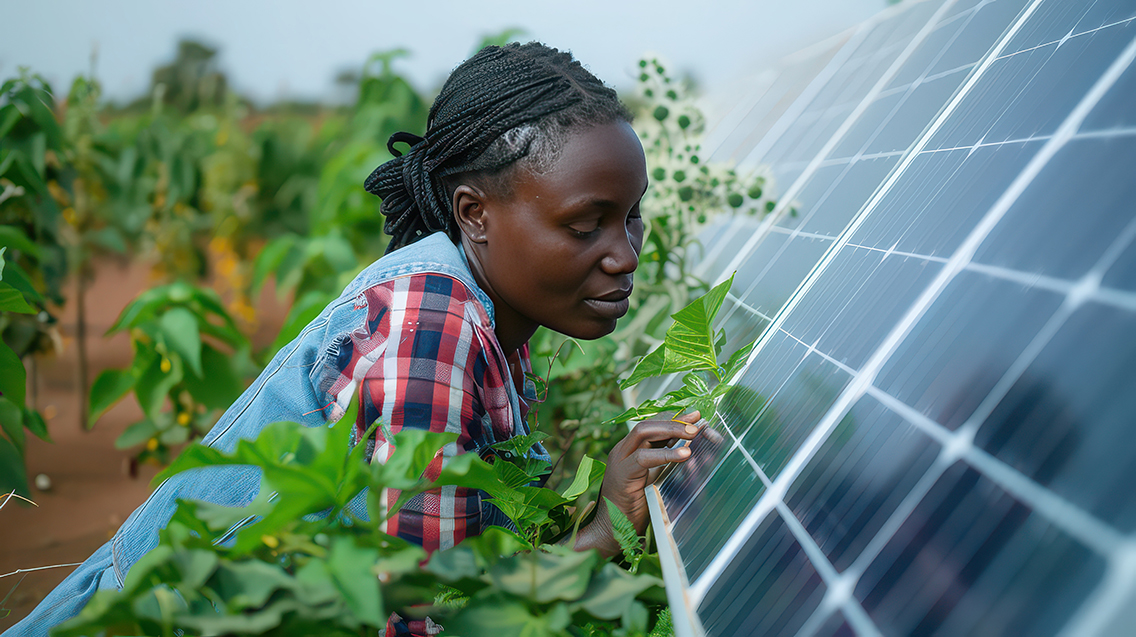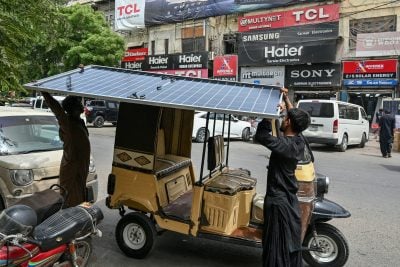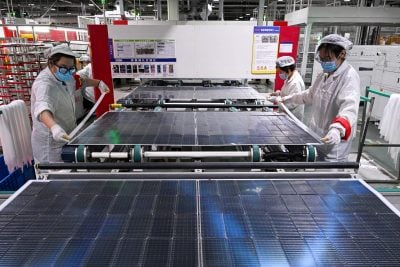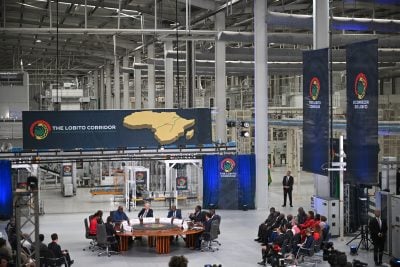With over 600 million people without access to energy in Africa, the continent faces a steep energy deficit. As the continent grapples with this challenge, experts believe that women must be fully involved, not least because there are particular effects that women face as a result of energy access. To mark Pan-African Women’s Day, which fell on 31st July, African Business convened an all-female panel of experts to discuss the role that women can play in addressing Africa’s energy challenges in the latest of its energy series. The discussion was moderated by Yvonne Okwara, senior news anchor and editor in charge of research and planning at the Kenyan broadcaster, Citizen TV.
Opening the discussions, Dr. Amani Abou-Zeid, former commissioner for infrastructure and energy at the African Union, noted that the lack of energy access is costing the continent between 2 and 6 per cent of GDP and needs to be addressed urgently. The statistics are even more dire for clean cooking, with more than 90% of the population without access. “Out of 1.3 billion people, close to a billion lack access to clean cooking. This affects their health and is one of the major causes of premature deaths on the continent.” With such a crisis, which she said is unmatched in any other continent, Abou-Zeid called for global attention and action, with women, who, along with children, are disproportionately affected, playing a central role. “We cannot exclude women. We cannot miss the creativity and the innovation and the energy of half of our people, particularly in sectors as important as energy,” she argued.
While the energy transition is necessary and will have tremendous benefits for Africa, Marième Sav Sow, managing director and country chair at TotalEnergies, Madagascar, cautioned that it must be anchored on three things – “reality, equity, and opportunity.” With energy access at a critically low level, Sow said Africa cannot be expected to leapfrog to renewables while leaving millions behind. “We must scale up on renewables, but in the meantime, we must continue to use all of our resources responsibly, including lower carbon alternatives like natural gas,” she proposed. Additionally, women and children must be centred in the transition. “We should not think of them as passive beneficiaries, but rather as active leaders, entrepreneurs, innovators.” Lastly, Sow said the transition must be seen as an opportunity for human and economic development, which requires a shift in mindsets. “We must invest in education, entrepreneurship and local content, especially for women,” she urged.
The director and global head, project and asset-based finance at African Export-Import Bank, Helen Brume, agreed with Sow that Africa’s transition must be reflective of its unique challenges and its stage of development. Noting that Africa accounts for far fewer emissions than the other continents, Brume said Africa cannot decarbonise before it has even industrialised. A just transition, in her view, must enable economic development while managing emissions sensibly. “The fact that Africa has not even carbonised yet and is being asked to decarbonise highlights the need for a balanced approach,” she stressed. Rather, she suggested, the continent must utilise natural gas as a transition fuel to maintain energy security and industrial momentum as it shifts to greener energy sources. Quoting a study by Afreximbank, which warned that focusing solely on emissions cuts at the expense of development would have dire consequences for Africa’s economy, Brume said the bank is supporting member countries to realise the full potential of their natural resources, including fossils.
To increase the energy capacity available to the continent, Charlotte Aubin, chief executive officer of GreenWish Group, said each African country must determine its optimal energy mix based on available resources, including fossil fuels where appropriate. According to her, the GreenWish Group’s projects had helped bring down the carbon footprint of its clients by 70% while increasing profits by 30%. The interventions, she pointed out, “were not solutions driven by decarbonisation but by reliability and optimisation of the balance sheet for the operator. Noting that priorities have shifted from closing the digital gap to the energy gap, she called for urgent action to ensure that access to power is broadened on the continent. “If we don’t sort out the energy access on the continent, there are going to be massive gaps as we go ahead,” she stressed. Citing research from Kenya that showed the income-multiplying effect of power in rural areas, she suggested that decentralising energy systems can help bring energy access to rural areas where energy poverty is most pronounced.
Reflecting on the role of women in the energy sector, Sow, who is also the first woman to lead the Madagascar Petroleum Industry Association, said there have to be more women at the tables where energy policy is made. Having diverse opinions, she argued, leads to better decision-making. “When we have different opinions at the table, because of our different backgrounds, the conversation only gets richer. The decision-making only gets more comprehensive.” To make this possible, Sow said she had championed the “STEM for Girls” initiative to equip more girls with the skills they need to participate in the field. “We’re not just opening doors; we’re also building all these pathways to leadership,” she said of the programme. Sow was also happy to report that TotalEnergies has increased the number of women in leadership by setting measurable targets and launching dedicated development programs. “Representation matters,” she said. “These programmes allowed us to have candid conversations about where we were heading and how to improve on that.”
Similarly, Brume said Afreximbank is focused on empowering women in the bank and the economy. Through the leadership of its president, Professor Benedict Oramah, 25% of the bank’s leadership roles are now held by women. The bank has also rolled out a series of targeted initiatives to support women entrepreneurs, with 83% of the beneficiaries of the bank’s development programmes being women-led SMEs. Over the past two years, this approach has been backed by extensive non-financial support, with more than 3,000 SMEs receiving training and assistance through incubators, accelerators, and workshops across 40 African countries. Among the bank’s standout programmes is “ShowcaseHer”, a three-year accelerator launched in partnership with ImpactHer, an organisation dedicated to bridging the gender financing gap. “It’s a three-year accelerator program aiming to prepare 1,500 African women-led SMEs for global value chains through export readiness and digitisation training,” Brume explained. The bank has also, through the biennial Intra-African Trade Fair, supported over 600 women to market their wares, virtually and in-person.
Drawing on her own experiences where she was expected to be a man on account of the position she held as an AU commissioner, Abou-Zeid said there are systemic and cultural challenges that continue to undermine women’s participation in Africa’s energy and infrastructure sectors, even though there has been some visible progress. She said the barriers for women in the industry go far beyond access to finance. “We have a good number of girls in our STEM colleges, but work-life balance issues, caregiving responsibilities and toxic work environments all contribute to women dropping out of the workforce.” She commended the AU and the African Development Bank, which have taken intentional steps to place women in leadership. “We must ensure women are not just recruited, but that they stay, thrive, and lead in these sectors,” she stressed.
Want to continue reading? Subscribe today.
You've read all your free articles for this month! Subscribe now to enjoy full access to our content.
Digital Monthly
£8.00 / month
Receive full unlimited access to our articles, opinions, podcasts and more.
Digital Yearly
£70.00 / year
Our best value offer - save £26 and gain access to all of our digital content for an entire year!

 Sign in with Google
Sign in with Google 




